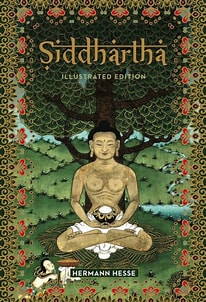Who Will Cry When You Die?"
Robin Sharma, Author of the book, is a world-renowned leadership expert, author, and speaker. Sharma started a career as a litigation lawyer, but he quit that high-stress, high-paying lifestyle at age 25 because he felt unfulfilled. However, it wasn’t until the release of his second book, "The Monk Who Sold His Ferrari", a spiritual guide in the form of a parable, that Sharma gained recognition as a self-improvement guru.
The book is full of preachings about "the right way to lead a good life" presented in a list-like manner rather than the thoughts weaved in a storyline or put philosophically to make an interesting read. If leading a fulfilling life was as simple as following a checklist the world wouldn't be distressed. Contemplating your life for half the time that you would need to finish the book would be much more fruitful. Everything explained in the book is true, except that there is not a single 'thing to do' mentioned throughout the book that one still needs to do or was at least aware of.
The book would have more global appeal, especially to people with a very hectic lifestyle and a mechanical routine. In Who Will Cry When You Die? Robin Sharma demands you ask yourself if, on your deathbed, you’ll look back on life and feel you got the most out of it. If your answer to this is “no,” Sharma provides 101 pieces of advice to help you build a life you’ll feel good about. These range from broad perspective shifts to specific actionable ones all to give you greater control over your life so you can make it one worth living.
Here are some lessons from the book, a collection of insights and wisdom aimed at helping readers live a more meaningful and fulfilling life.
1. Live with Purpose: Sharma emphasizes living with a sense of purpose. Knowing your purpose gives direction and meaning to your life and motivates you to positively impact the world
2. Practice Gratitude: Cultivating gratitude for the blessings in your life can lead to greater happiness and fulfillment. Sharma encourages readers to express gratitude daily and appreciate the beauty and abundance around them.
3. Take Risks: Taking risks and stepping out of your comfort zone is essential for personal growth and success. Sharma advocates for embracing challenges and seizing opportunities for growth and development.
4. Be Authentic: Authenticity is about being true to yourself and aligning with your values and beliefs. Sharma encourages readers to embrace their uniqueness and live authentically, without trying to please others or conform to societal expectations.
5. Live in the Present Moment: The present moment is all we have, and learning to live fully in the present can lead to greater peace and happiness. Sharma advocates for mindfulness and being fully engaged in each moment of life.
6. Serve Others: Serving others and making a positive difference in the lives of others brings deep fulfillment and joy. Sharma encourages readers to look for opportunities to serve and contribute to the well-being of others.
7. Take Care of Your Health: Physical, mental, and emotional well-being are essential for a fulfilling life. Sharma emphasizes the importance of taking care of your health through regular exercise, proper nutrition, and self-care practices.
8. Keep Learning: Lifelong learning is key to personal growth and development. Sharma encourages readers to be curious, seek knowledge, and continuously strive to improve themselves.
9. Practice Forgiveness: Holding onto grudges and resentment only weighs you down. Sharma advocates for the practice of forgiveness as a way to release negative emotions and find peace within yourself.
10. Live with Passion: Living with passion and enthusiasm makes life more vibrant and exciting. Sharma encourages readers to pursue their passions, follow their dreams, and live with zest and energy.
Conclusion:
Having said the above, most of us may ponder over what is next.
Now and then, we come across motivational speeches and writings either from social media or self-help books about various subjects. It has become a lucrative business. Though most of them try to involve us to release some “ feel good’” factors, for the time being, it ceases after some time. Mostly the subject is “ success “ and for the speaker or author, it lies in money, power, prestige, or anything else he chooses. Is not ”success” subjective? You may be successful in one thing and a loser in another. Many a dream is sacrificed to pursue a purposeful, prioritized arena. Success is about winning the most important aspect of life.
Most of the content of the motivators is stereotypical norms which in the long run become a burden because the things that excite us today may not move us tomorrow. For them, it is a trick to create a problem and make money. Motivational content mostly ignores the probabilities and privileges of anybody’s success. Perhaps what we need is a society that accepts us as it is and cares about catching us when we fall.
No matter what hopeless situation you are in now, there will be a fire in the belly when you realize you are made for bigger things. A fire of self-belief. When that happens, no force can put out that fire.





